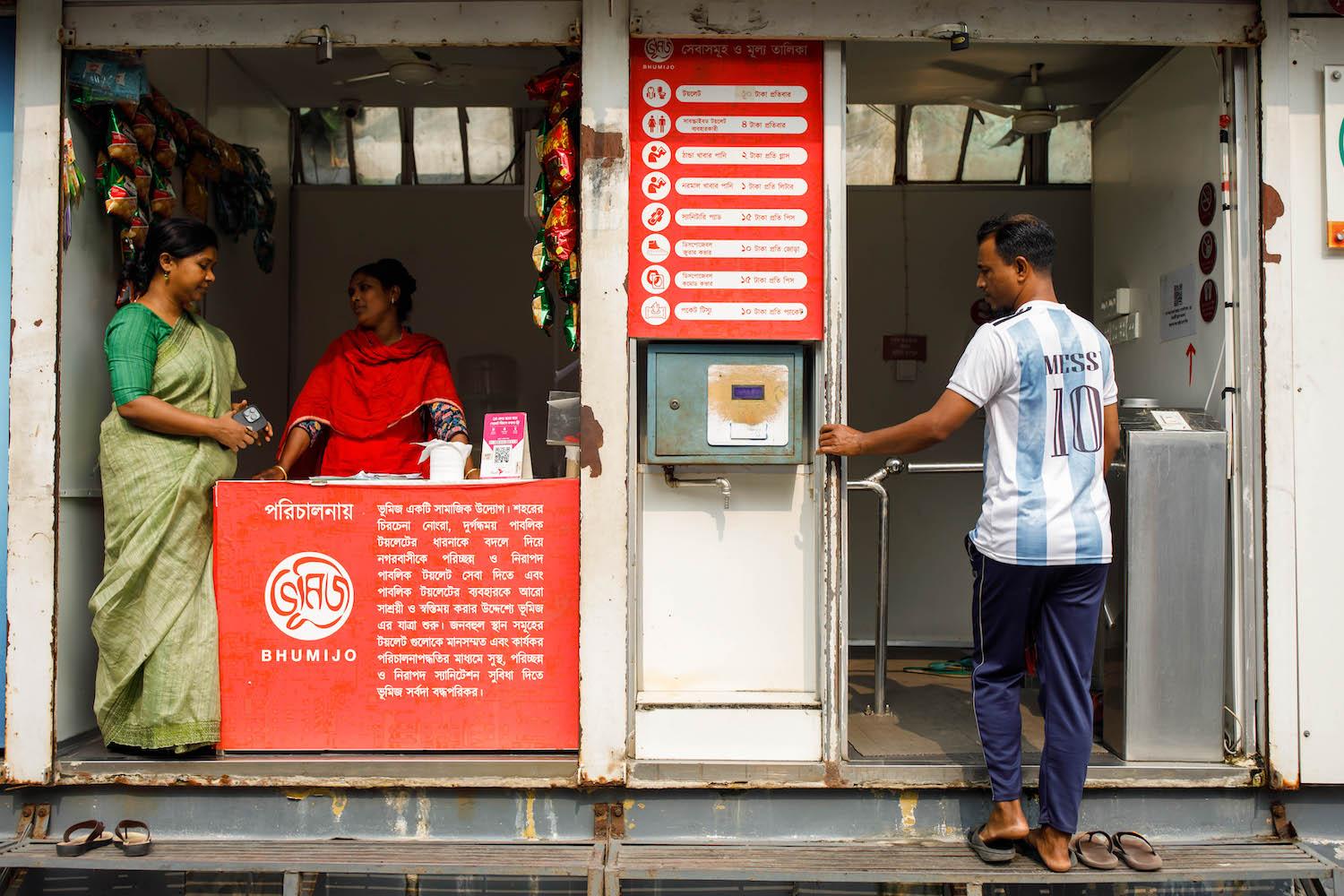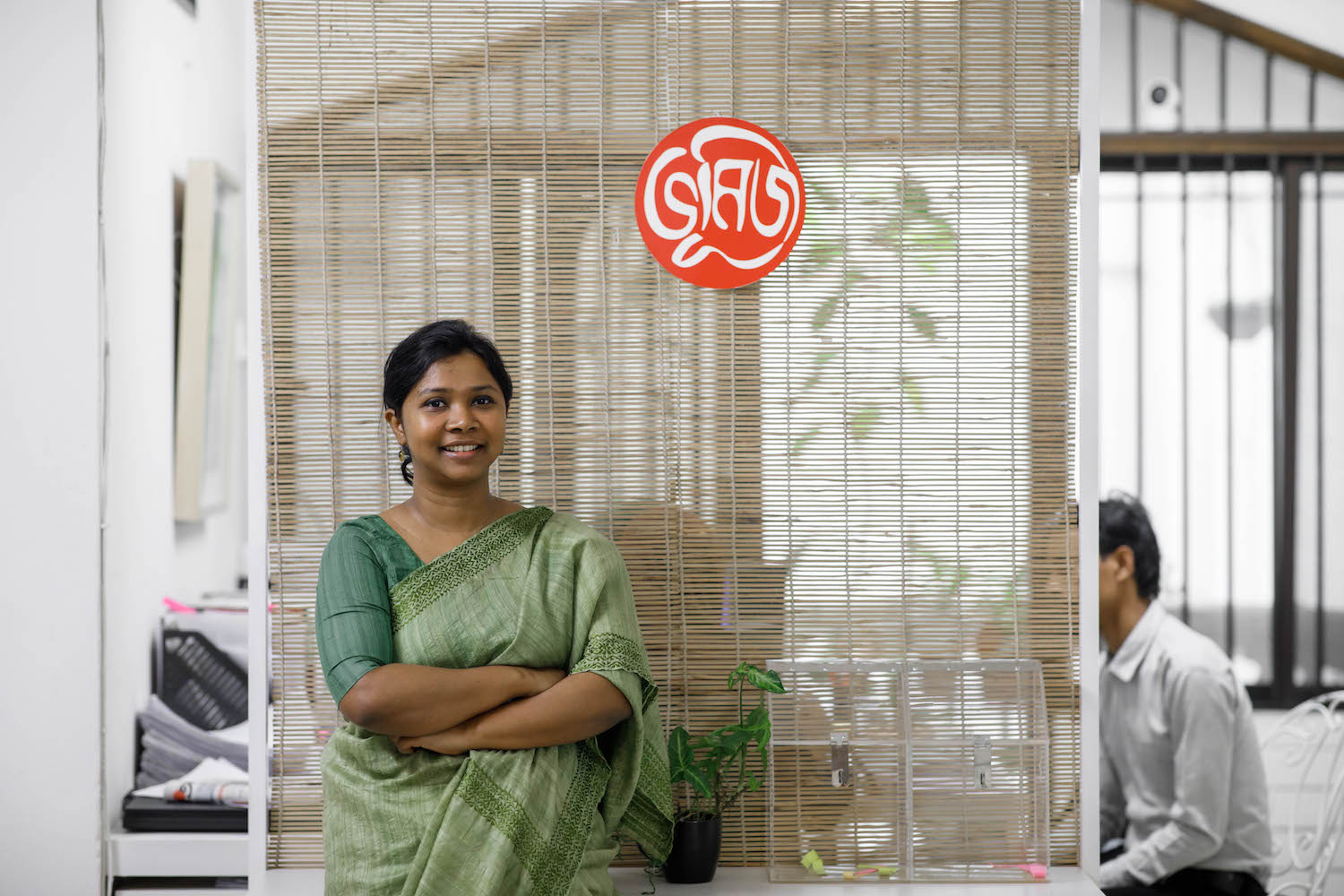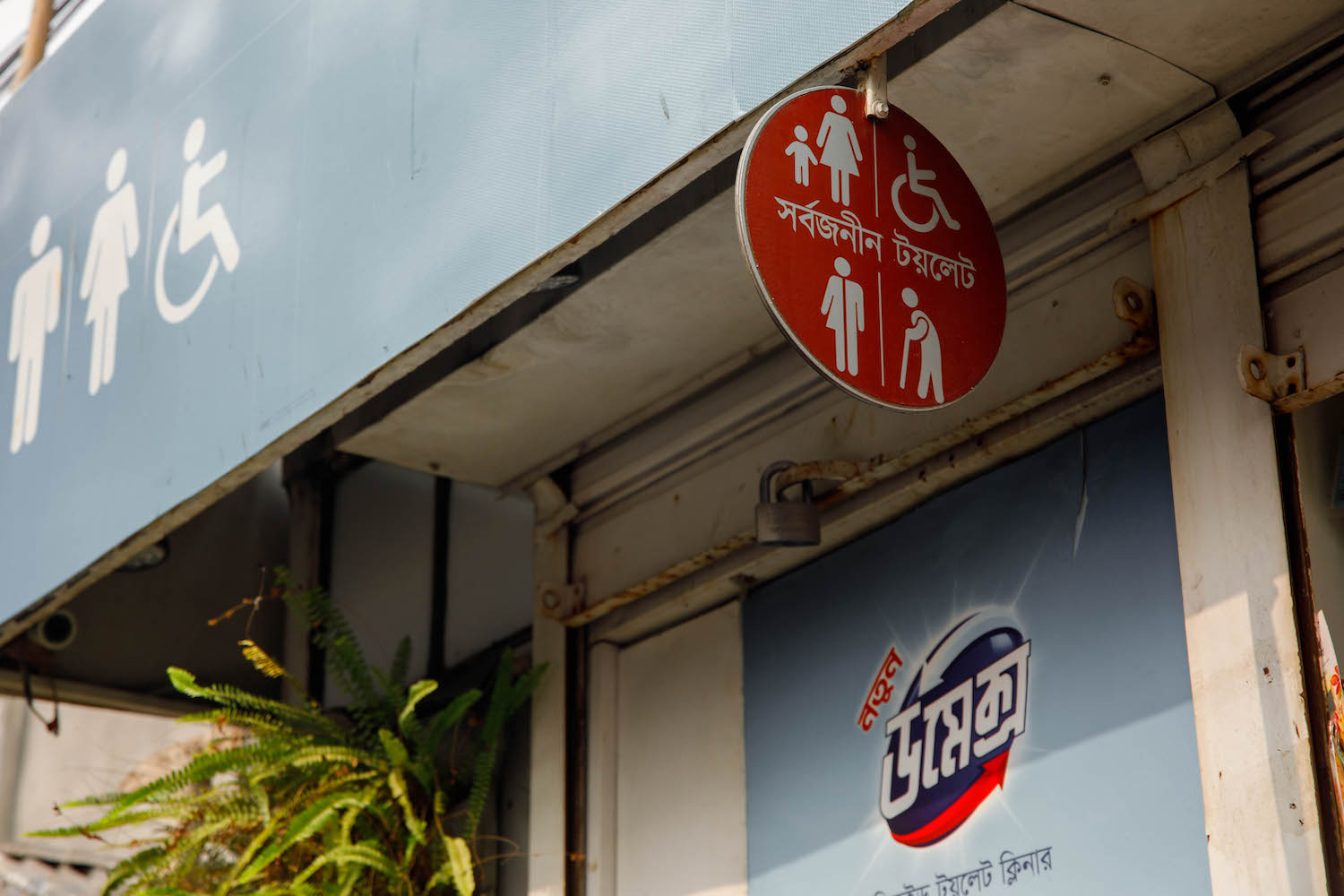
Bhumijo's public facilities are monitored by on-site maintenance staff to ensure they are clean and safe.
More than 23 million people live in the greater Dhaka area — which includes suburban areas beyond the “city proper” — making Bangladesh’s capital the ninth-largest and seventh-most densely populated city in the world as of 2022. Its population, which includes over 5 million daily commuters, is projected to exceed 27 million by 2030. Yet Dhaka’s residents have less than 100 public toilets available to them.
Two city corporations — self-governing entities responsible for the north and south of Dhaka municipality, respectively — are responsible for the facilities and charge entry fees. Yet many of the public toilets are unusable, often with overflowing and defunct toilets and no soap or clean water.
Many working women in Dhaka spend 12 to 16 hours a day outside of their homes, and 80 percent of the city's women report not drinking or drinking less water due to the drought of safe, functional public toilets, according to a survey conducted by sanitation services provider Bhumijo. Such difficult decisions pose immediate public health concerns, including a rise in urinary tract infection conditions and other kidney-related diseases.
Farhana Rashid, trained as an architect and urban planner, returned to her home city of Dhaka after studying in Sweden and saw few gender-responsive development initiatives. Having firsthand experience with Dhaka’s public infrastructure and resources, Rashid — along with her husband, architect Masudul Islam Shammo — founded Bhumijo, the first and sole social enterprise that builds public toilets in Bangladesh’s urban centers.

Bhumijo currently operates and maintains 33 sanitation centers across Dhaka, as well as the cities of Benapole, Narayanganj and Khulna, with a goal of reaching 1,000 facilities by 2030. Individuals may pay per use or by monthly subscription, with prices ranging from 5 to 10 Bangladeshi Takas per use, or less than a cent in U.S. dollars. These fees are determined by city regulations and are equivalent to the cost of using a city corporation washroom, Rashid told TriplePundit. The company also renovates and maintains several restrooms that were built by the city corporations.
Bhumijo’s restrooms also include diaper changing stations, ablution and leg-washing stations, accessible toilets, and private sections for both women and gender non-conforming people. Some facilities also offer showers, laundromat services and drinking water dispensers.
Beginning with five employees in 2017, Bhumijo’s team is now about 55 strong, including some of Rashid’s friends and family who volunteered from the beginning. The name Bhumijo is a Bengali word meaning “from the earth.” The name alludes to our human and community needs’ inextricable connection to the earth, Rashid said. “We made Bhumijo not only for public sanitation, but in the broader aspect to protect the health of the people of Bangladesh.”
The company grew with support from Transform, a Unilever-funded accelerator for social enterprises in Asia and Africa, as well as from the U.K.’s Foreign Commonwealth and Development Office and from professional services and accounting firm EY. GSMA’s Mobile for Development grant also supports Bhumijo in digitizing its facilities. Several of these efforts are in the trial stage, including digital entry and payment options, remote monitoring in addition to on-site maintenance staff, and an app that displays the real-time occupancy and indoor air quality of the nearest facilities.

Still, shifting the perception of public restrooms takes time, Rashid said. “People are used to locating public toilets by smell alone.” Accordingly, most were initially wary of Bhumijo’s development in areas near their homes, markets or parks.
“At the beginning, we struggled to find places to build,” she said. “Everyone thought the area would become so dirty that no one could live there. We still sometimes face that assumption, but it has been reduced.”
As Bhumijo’s facilities expand, the company continues to identify areas to strengthen its system. For example, it can now manage payments in cash or online, and it expanded its water reservoirs to maintain adequate supply to all locations, Rashid said.
Other goals include finding more development partners, such as government agencies and mobile operators, to expand to high-density areas like bus and train stations and provide internet at facilities to support mobile payments. On a broader scale, Bhumijo is in discussion with policymakers about the most appropriate means of operating public toilets, from leasing them out to establishing maintenance and sanitation schedules.
Image credits: Bhumijo

Michelle is a freelance writer with experience in international nonprofit work, arts and culture writing, and creative copywriting. She is particularly devoted to stories that highlight cultural expansion and our interdependence.














